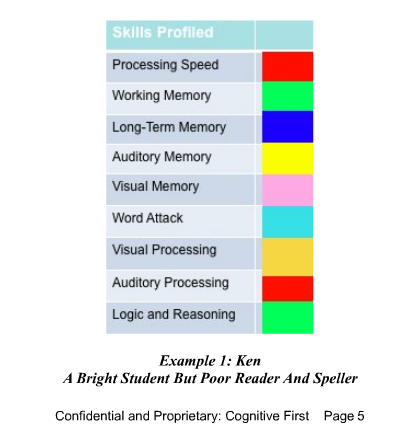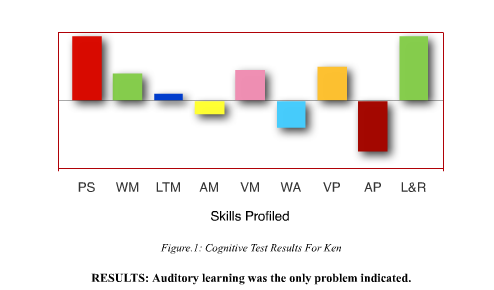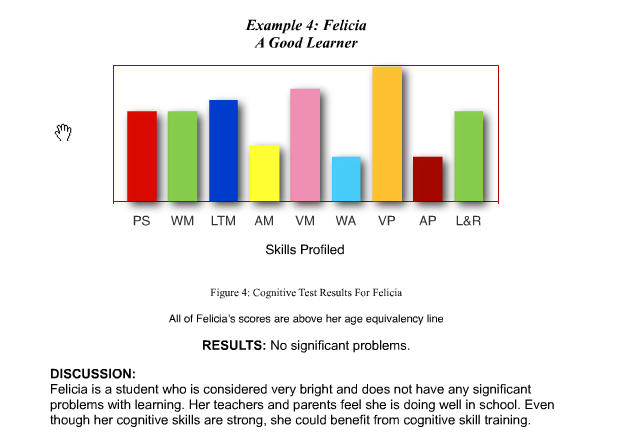Introduction
One of the significant components of neuropsychological evaluation is memory assessment, though the tests administered have been observed to contain many flaws. This is because most procedures are chosen due to their ability to identify structural brain pathology as opposed to their capability to evaluate memory performance based on the factor operations that motivate it.
The clinical and research functions of the clinical neuropsychologist have shifted towards integration of cognitive psychology and evaluation of cognitive components. During the assessment of cognitive functioning, the neuropsychologist needs to ensure that the tests carried out are specific to the cognitive operations of interest in order to arrive at the correct conclusions (Rourke, 1992).
Cognitive skills
Cognitive skills are the learning tools with which individuals approach a task. They determine the ease, speed and quality with which a person is able to learn and execute. Cognitive skills are important to children, and they form the basis for learning. They are different from the academic subjects in that they are mental tools necessary to process and learn material that is taught to them.
Cognitive skills identify the effectiveness with which an individual processes the information received. These skills are used to focus to and retain information, process, assess and store facts and feelings, and create mental pictures and read words that help to understand concepts. Research conducted by the National Institute of Health has observed various factors contributing to the struggle to learn, though over 75% of the cases identified weak cognitive skills as the main cause (Levin, Davidson, Wolff, & Citron, 1973).
Identifying the strength of cognitive skills
This is possible by observing the student or individual during their daily activities. Each activity demands a certain degree of involvement or abilities. Through observation, it is possible to spot the things that are easy or hard to do. One can also identify things that the student is enthusiastic to do, and those that one is hesitant to, or tries to avoid them.
A student with strong cognitive skills is able to perform most activities with ease, and finds them enjoyable. In the event that some of the skills are weak, the student experiences problems in talks that require that skill (Beverley & Lerner, 2008).
There are a few limitations to determining the cognitive skills of a student based on performance. The process is time consuming and requires good knowledge of the association between fundamental skills and their roles in the student’s activities.
Observation of performance can identify a difficulty, though it is difficult to link it to a particular weakness. An example of such a situation is a student experiencing difficulty in completing a jig-saw puzzle. This could be attributed to inattention or poor memory, whereby the student cannot remember where the last piece was put (Levin & Divine-Hawkins, 1974).
Testing cognitive skills
In order to verify the observations made, cognitive tests need to be conducted. These tests serve as the first step of rectifying weak skills as they help to recognize an individual’s learning tools, therefore helping to direct the training program. The examination of a person’s capability to learn looks at how they process information.
Mental skills are interdependent, which makes it impossible to fully separate and evaluate just one. There are seven core skill groups with over seventy varying cognitive skills collectively. The core skill groups include visual processing, auditory processing, logic and reasoning, long-term memory, working memory, processing speed and attention (Paris, Mahoney, & Buckhalt, 1974).
Testing attention
Some cognitive tests are intended to generate an IQ score, while others evaluate the quality of particular cognitive skill levels. One of the cognitive skills evaluated is attention. Attention looks at the ability to execute ideas or plans with focus, lucidity and rationale. Skills related to attention include maintaining the attention, ignoring distractions, and attending to various tasks simultaneously.
Isolating attention from other cognitive skills for testing is challenging, which requires an attention survey to be conducted. Individuals with weaknesses are observed to show poor listening due to ease of distraction, require things to be repeated, find it challenging to keep up with conversations in a crowd, impulsive and overlook vital information (Paris, Mahoney, & Buckhalt, 1974).
Testing processing speed
This test looks at the speed with which an individual processes simple concepts. In administering the test, the individual is requested to pick one of the two identical numbers or letters in a row of several items. The test progressively gets challenging by increasing the combination of items to be selected. A person with difficulty is observed to have slower performance, asking for the instructions more than once and problems with basic reading, written expression and calculations (Levin, Davidson, Wolff, & Citron, 1973).
Testing working memory
The essence of this test is to evaluate the simplicity and ability to retain data in memory while assessing it. The test is administered by holding pictures and words in memory while performing other mental duties before responding. Weaknesses are identified when the subject shows dificulty in remembering the names or numbers and solving simple instructions. The subject also repeatedly asks for the instructions (Levin, Davidson, Wolff, & Citron, 1973).
Testing long-term memory
This test is aimed at identifying the long-term storage and retrieval capacity. the individual is supposed to store and retrieve a string of photos and statements after a period of time and engagement in a few activities. An individual with a weakness in long-term memory is observed to show difficulty in recalling the material for the tests, demands more practise and shows inconsistent performance with frequent use of descriptor words (Levin & Divine-Hawkins, 1974).
Visual processing
The test evaluates the detection and manipulation of visual images. Manipulation involves perceiving the images and analyzing them. Subjects experiencing difficulty in visual processing show problems with processing symbols, copying tasks and has problems with interpreting graphics. Such people are also observed to read slowly and have low creativity. They also have problems identifying big words (Levin & Divine-Hawkins, 1974).
Auditory processing
The test looks at the capacity to control and comprehend spoken sounds. This is an important evaluation as it identifies the skill for reading and spelling. Subjects with a weakness are observed to have poor reading comprehension and experience trouble with phonetic reading activities (Beverley & Lerner, 2008).
Logic and reasoning
This test identifies the capacity of an individual to reason, form concepts and draw conclusions from the unfamiliar information provided. The test involves a series of patterns with one missing, whereby the subject is supposed to select one from a list of five. Weaknesses are identified by difficulty in math, including geometry and algebra, poor creative writing and general slowness (Beverley & Lerner, 2008).
Word attack
The test is administered with a view to identify the capacity to pronounce unknown words and correctly identify letter arrangements. In adminstering the test, the individual is told a made-up word and then comes up with four letter words that sound like the word. This test looks at the auditory processing of an individual. Weaknesses are identified by reduced comprehension caused by the inability to match sounds to letters (Beverley & Lerner, 2008).
Case study
The situation involves two of the four common categories that students with learning dificulties find themselves in. The case looks at the nine cognitive skill areas discussed above, whereby the two subjects are a poor reader and speller and a good learner. The two were tested on their strengths and weaknesses in each area evaluated. The chart used was based on various colours as shown below.

Chart 1: colour code for the nine cognitive skill areas
Bright student but poor reader and speller

Figure 1: cognitive test results for a bright student but a poor reader and speller.
The first student was considered to be bright as he had an IQ of 140, though he had problems with reading and spelling. He studies and obtained a doctorate, though he could not pursue his choice of career, law, due to difficulties, and so he decided to pursue medical sciences.
A spelling test conducted in elementary school showed that he could ace it after reading several minutes before being evaluated, but he could not recall after several weeks, due to his poor long-term memory. He had spelling difficulties that gave him difficulties time writing. He also dropped two courses in foreign languages and got the lowest grades in English. His problem was identified in his fourth grade, when he could not memorize the many words in reading comprehension (Paris, Mahoney, & Buckhalt, 1974).
The student’s difficulty with reading and spelling was due to his weakness in auditory processing skills. His determination of unknown words was based on evaluation of its context, and searching for words within the unknown words since he could not sound them out.
Learning through a phonics program would have yielded the same result without paying particular attention to his auditory processing skills. Such skills would allow him to segment and join sounds in order for him to become a good reader. The problem should have been fixed when he was young, since despite being a doctor, he could not read out passages in front of people (Paris, Mahoney, & Buckhalt, 1974).
Good learner
The student was considered to be bright, and the cognitive skills showed no weaknesses. In spite of this, some training in cognitive skills is advisable in order to have a competitive edge.

Figure 2: good learner
Conclusion
The early identification of learning problems in children is critical for fast recovery, or else serious damage could occur. Most parents who identify their children struggling prefer to wait and determine if the problem ends by itself. Obstacles to recovery can come up due to delays in seeking assistance, and they can influence the children psychologically. Recovery also becomes harder as the children grow, but they can be helped successfully. The best way to go about it is seeking help as soon as the problem is identified (Beverley & Lerner, 2008).
Recommendation
Research has shown that memory is enhanced by visual imagery. Research conducted recently has shown that the children’s memory performance can be enhanced by using instructions to create mental images. Studies that have been conducted before prove that adults who use imagery to connect components of a passage tend to have an improved memory of the story line (Levin & Divine-Hawkins, 1974).
At the same time, children have shown signs of improved memory when they make use of imagery, which is created through instructions issued by the administrators. This was especially found to be effective in children with reading problems despite their effective vocabulary and decoding skills.
Their reading problems are usually attributed to their lack of creating mental images that relate to the context of their readings. Research also indicated that children find it difficult to create mental pictures while they are reading. The solution was the implementation of successive processes, by reading first followed by imaging, as opposed to reading and imaging at the same time (Levin & Divine-Hawkins, 1974).
References
Beverley, J., & Lerner, J. W. (2008). Learning Disabilities and Related Mild Disabilities: Characteristics, Teaching Strategies, and New Directions. Belmont, California: Wadsworth Publishing.
Levin, J. R., & Divine-Hawkins, P. (1974). Visual imagery as a prose learning process. Journal of Reading Behavior , 6, 23-30.
Levin, J. R., Davidson, R. E., Wolff, P., & Citron, M. (1973). A comparison of induced imagery and sentence strategies in children’s paired-associate learning. Journal of Educational Psychology , 64, 306-309.
Paris, S. G., Mahoney, G. J., & Buckhalt, J. A. (1974). Facilitation of semantic integration in sentence memory of retarded children. American Journal of Mental Deficiency , 78, 714-720.
Rourke, P. B. (1992). Methodological and biostatistical foundations of clinical neuropsychology. London: Taylor & Francis.